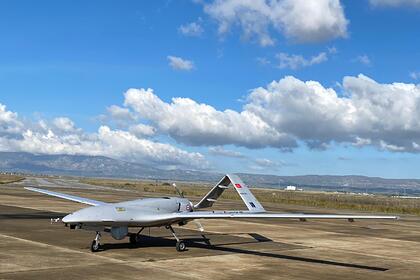
A military expert, editor-in-chief of the magazine “Arsenal of the Fatherland” Viktor Murakhovsky questioned the statement of Haluk Bayraktar – the manufacturer of the Turkish Bayraktar TB2 attack drones – about their invulnerability to Russian electronic warfare (EW). He shared his opinion with the REN TV channel.
He pointed out that Bayraktar hardly had the opportunity to get acquainted with Russian electronic warfare technologies. “His statement is nothing more than an unfounded reaction to the fall of Bayraktar in some regions where they were used,” he specified. Murakhovsky added that Russia has systems capable of suppressing control channels and satellite navigation systems used by drones.
Bayraktar spoke about the invulnerability of his drones earlier on February 28. “Russian electronic warfare systems could not stop Bayraktar TB2 even for an hour,” he said, explaining that the drone is protected from electronic warfare, so it “will always be in the air.”
In November 2020, it became known that the Russian army will begin to receive electronic warfare stations “Palantin” designed to suppress control channels for unmanned aerial vehicles (UAVs), as well as cellular and radio communications. According to military expert Vladislav Shurygin, the Palantin complex was created primarily “to counter NATO's latest military communications systems.” This means of electronic warfare, according to the expert, will be especially in demand for “jamming” drones of “any class”.
At the same time, military historian Dmitry Boltenkov noted that “the war in [Nagorno] Karabakh brought the problem of fighting them to a new level.” The expert is sure that it is difficult, if not impossible, to counteract these UAVs, which are “not even the most advanced in equipping the country's military equipment” with obsolete weapons.

